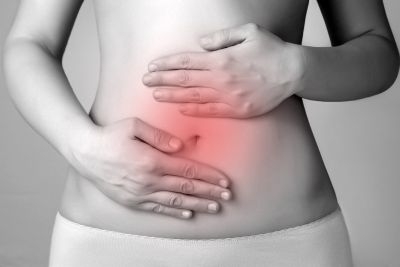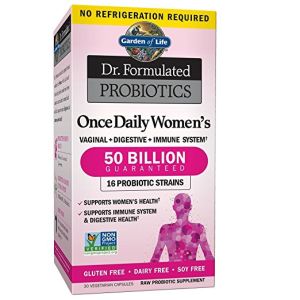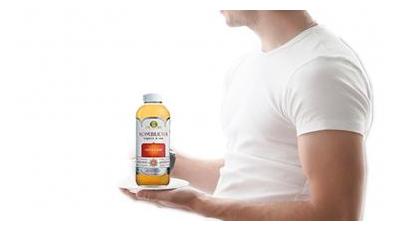Probiotics have been used to treat a wide variety of gastrointestinal disorders, including constipation. If you have been suffering from difficult or infrequent bowel movements, probiotics could be a good way for you to find relief.

Probiotics have been used for constipation for a long time
Constipation was actually one of the very first conditions that probiotics were tested on in the early 1920’s. Drs. Harry A. Cheplin and Leo F. Rettger published a revolutionary article in 1920 in which they used the now well-known strain of bacteria Lactobacillus acidophilus, isolated from the intestine and cultured in the lab, to alter the gut microbiome in rats. 1 They followed this with experiments feeding combinations of lactose and whey cultured with L. acidophilus to 17 men, where they found improved digestion and gastrointestinal health. 2,3.

Balanced gut microbiome equals healthy digestion
In the decades that followed the first experiments with probiotics, researchers uncovered the importance of beneficial bacteria and yeast for our digestive systems. Although scientists are still discovering the ways that your gut microbiome interacts with the other systems in your body, it is well-understood now that these microbes are essential for proper digestion. Beneficial bacteria can digest substances that your human cells cannot, like insoluble fibers, and produce nutrients that are easier to absorb. They also keep harmful yeasts and bacteria species from colonizing your intestines and making you sick. If you are having problems with your digestion, such as constipation, your gut microbiome could be out of balance.2

Probiotics are safe to take
The good news about probiotic supplements is that they are relatively safe to take. Clinical trials testing probiotics for the treatment of constipation have reported few if any, minor side effects in the patients taking the supplements. 4 In most studies on probiotic supplementation, including those giving double the standard dose of 200 million CFUs (colony-forming units), only improvements in quality-of-life scores were noted, without any negative impacts from the supplements. 5 Probiotics have even been used safely in children with constipation, 6,7 though you should always talk to your pediatrician before giving your child any type of supplement. synbiotics.3

Constipation-related symptoms alleviated by probiotics
While constipation is clinically defined as infrequent bowel movements if you suffer from chronic constipation you know that there is more to the story. Pain, discomfort, and long amounts of time spent on the toilet are some other consequences that often come along with constipation. 5,8 What’s more, if you suffer from chronic constipation, you are more likely to feel depressed or anxious as well. 9 Fortunately, along with improving stool consistency and bowel movement regularity, several strains of probiotics have been found to improve all these other complications as well. Some doctors hypothesize that probiotics may help with constipation by increasing gut motility. 10,11

The best probiotic strains to help with constipation
Deciding on a probiotic supplement to help with your constipation troubles? To help you choose, here is a list of strains that clinical studies have found to provide relief from constipation symptoms:
Lactobacillus acidophilus
Lactobacillus plantarum
Streptococcus thermophiles
Lactobacillus reuteri
Bifidobacterium animalis
Lactobacillus casei
[1] Cheplin HA, Rettger LF. Studies on the Transformation of the Intestinal Flora, with Special Reference to the Implantation of Bacillus Acidophilus: I. Feeding Experiments with Albino Rats.Proceedings of the National Academy of Sciences of the United States of America.1920;6(7):423-426a
2.Cheplin HA, Rettger LF. Studies on the Transformation of the Intestinal Flora, with Special Reference to the Implantation of Bacillus Acidophilus: II. Feeding Experiments on Man. Proc Natl Acad Sci U S A. 1920;6(12):704-705.
3.Rettger LF, Cheplin HA.A Treatise on the Transformation of the Intestinal Flora, with Special Reference to the Implantation of Bacillus acidophilus.New Haven, CN: Yale University Press; 1921.
4.Dimidi E, Christodoulides S, Fragkos KC, Scott SM, Whelan K. The effect of probiotics on functional constipation in adults: a systematic review and meta-analysis of randomized controlled trials.The American journal of clinical nutrition.2014;100(4):1075-1084.
5.Riezzo G, Orlando A, D'Attoma B, Linsalata M, Martulli M, Russo F. Randomised double blind placebo controlled trial on Lactobacillus reuteri DSM 17938: improvement in symptoms and bowel habit in functional constipation.Beneficial microbes.2018;9(1):51-60.
6.Tabbers MM, Benninga MA. Constipation in children: fibre and probiotics.BMJ clinical evidence.2015;2015.
7.Wegh CAM, Benninga MA, Tabbers MM. Effectiveness of Probiotics in Children With Functional Abdominal Pain Disorders and Functional Constipation: A Systematic Review.Journal of clinical gastroenterology.2018.
8.Yoon JY, Cha JM, Oh JK, et al. Probiotics Ameliorate Stool Consistency in Patients with Chronic Constipation: A Randomized, Double-Blind, Placebo-Controlled Study.Digestive diseases and sciences.2018.
9.Xu N, Fan W, Zhou X, et al. Probiotics decrease depressive behaviors induced by constipation via activating the AKT signaling pathway.Metabolic brain disease.2018.
10.Dimidi E, Christodoulides S, Scott SM, Whelan K. Mechanisms of Action of Probiotics and the Gastrointestinal Microbiota on Gut Motility and Constipation.Advances in nutrition (Bethesda, Md).2017;8(3):484-494.
11.Zhao Y, Yu YB. Intestinal microbiota and chronic constipation.SpringerPlus.2016;5(1):1130.
.
-
Difference Between Prebiotics and Probiotics
By Dr. KarenMarch 8, 2022 -
Probiotics for Infants
By Dr. AnnaMarch 8, 2022 -
Probiotics for Men
By Dr. KarenMarch 8, 2022 -
Vegan Probiotics
By Dr. KarenMarch 8, 2022 -
Probiotics for Yeast Infections
By Dr. KarenOctober 19, 2021 -
Probiotics for Weight Loss
By Dr. KarenMarch 8, 2022 -
Best Time to Take Probiotics
By Dr. KarenMarch 8, 2022 -
Probiotics for Children
By Dr. KarenMarch 8, 2022
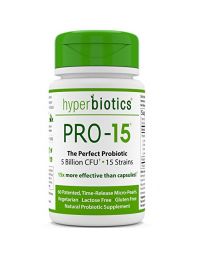
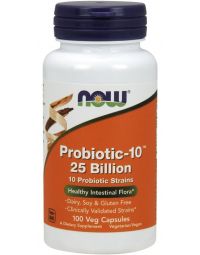
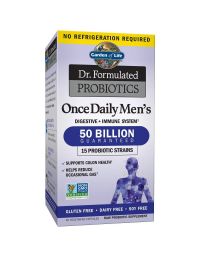
Search the blog
Article Categories
- All Articles (95)
- Rating Charts (1)
- Beauty & Skincare (17)
- FAQ (0)
- Hair Care (9)
- Health & Wellness (12)
- Anti-Aging (4)
- Kid's Health (0)
- Makeup (2)
- Men's Health (2)
- Oral Care (3)
- Sunscreen (7)
- Skin Tools & Treatments (10)
- Supplements (26)
- Videos (0)

